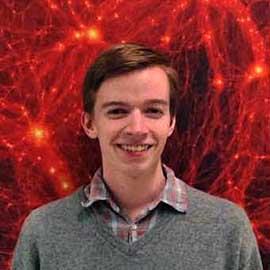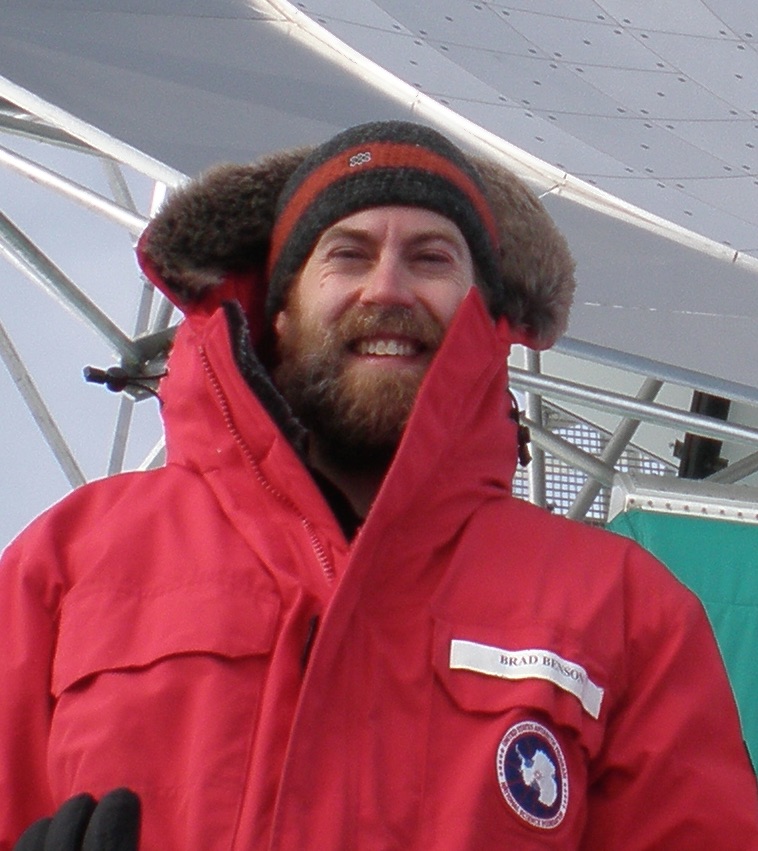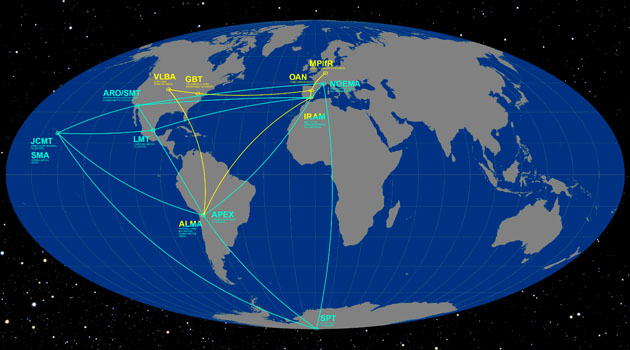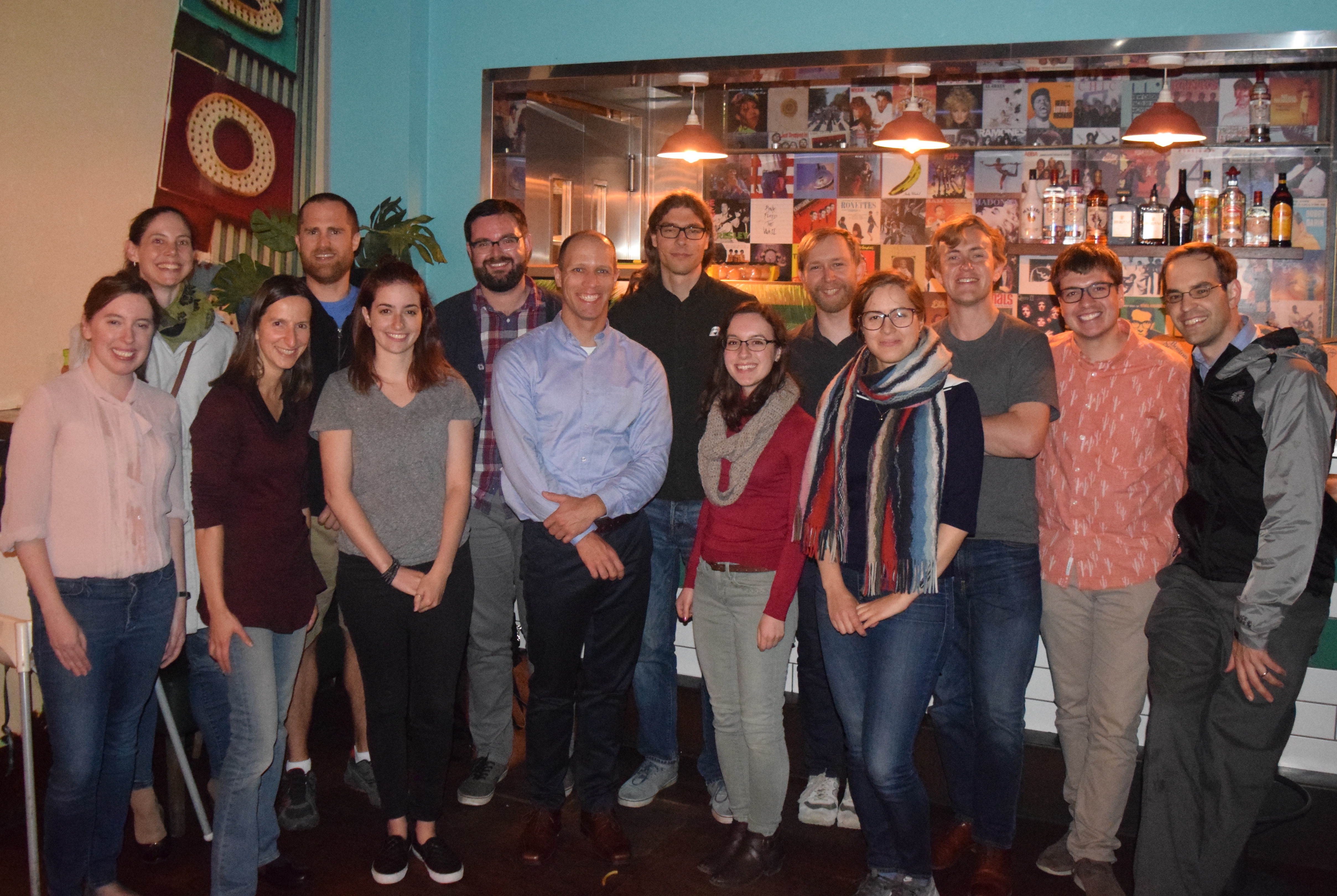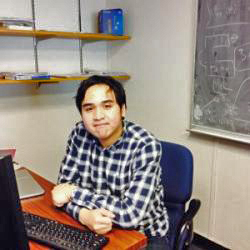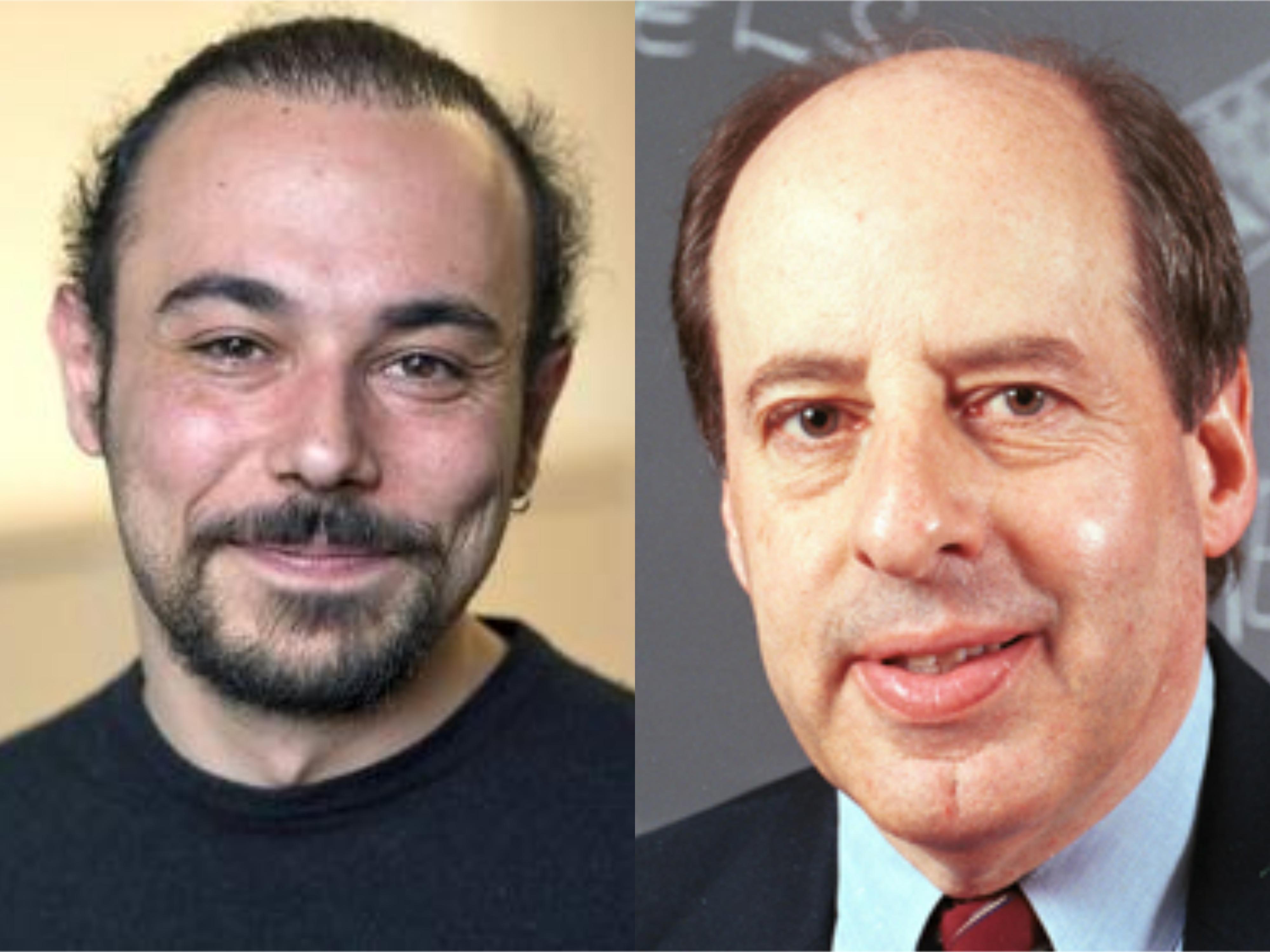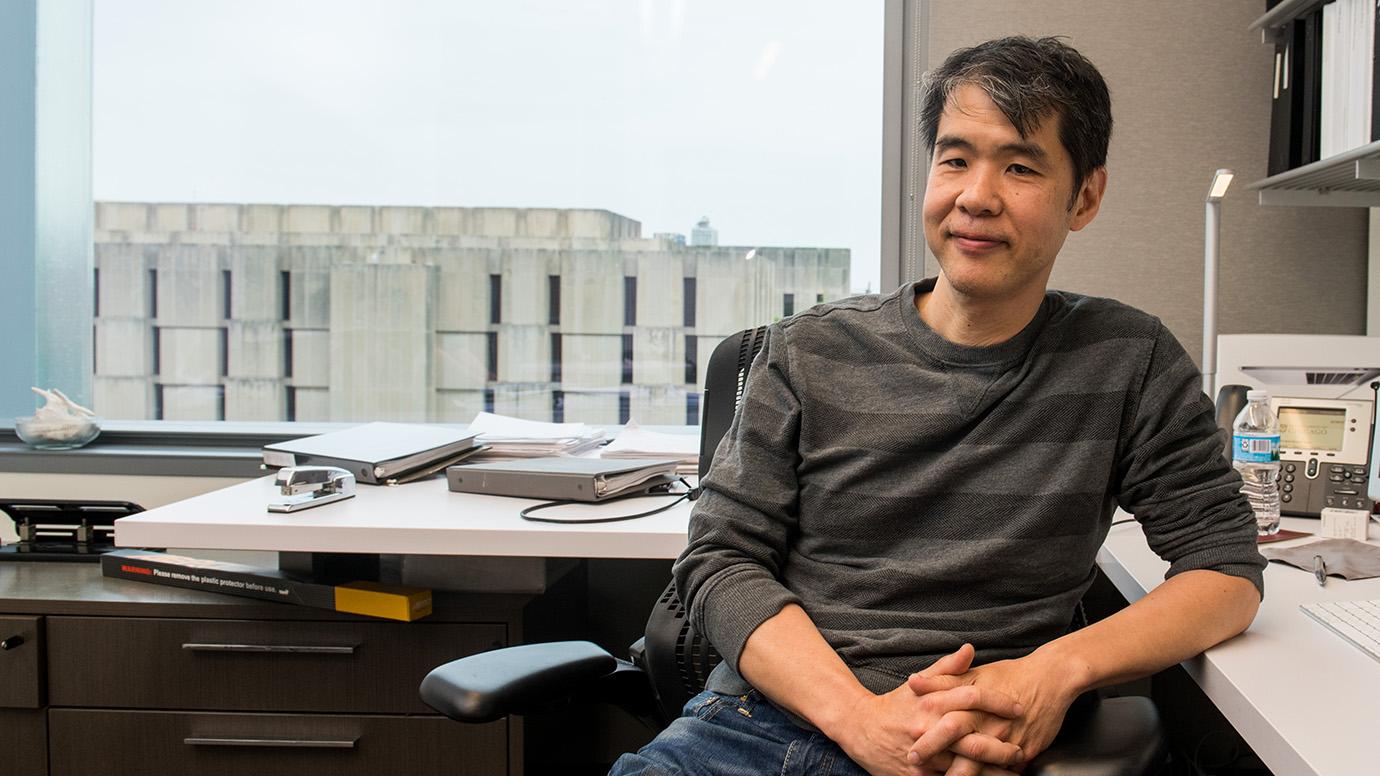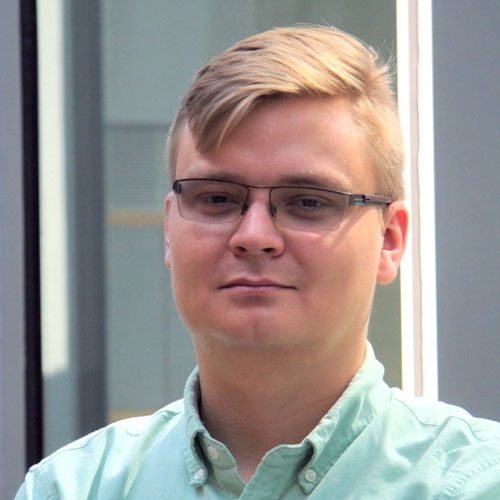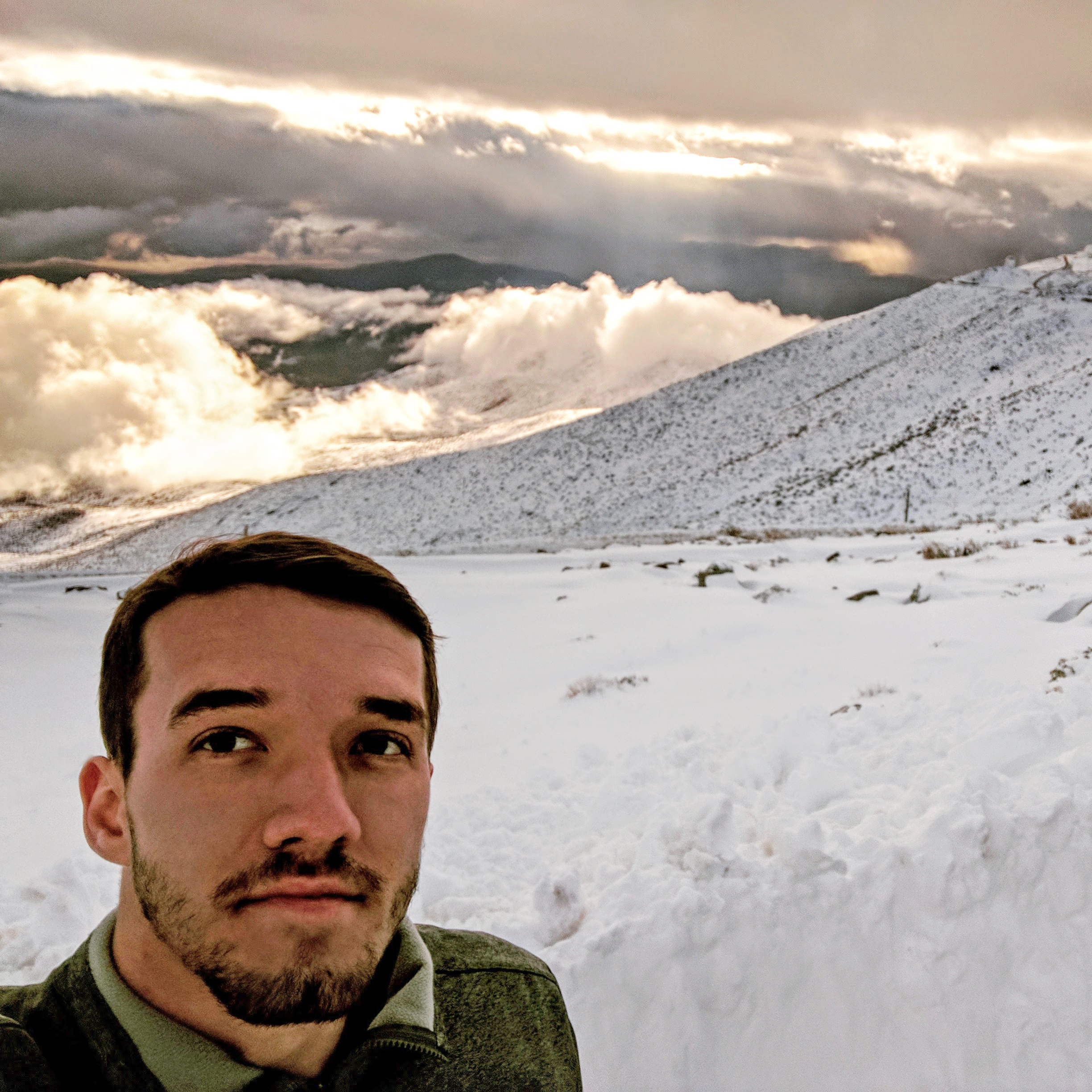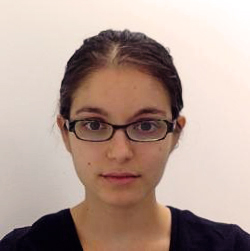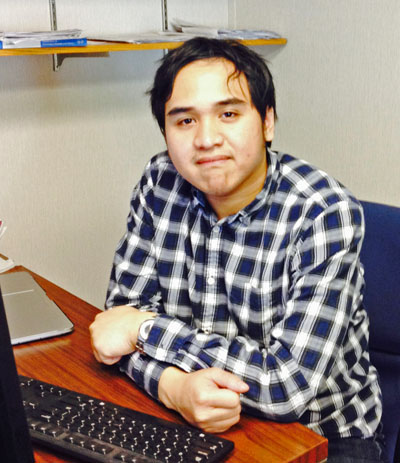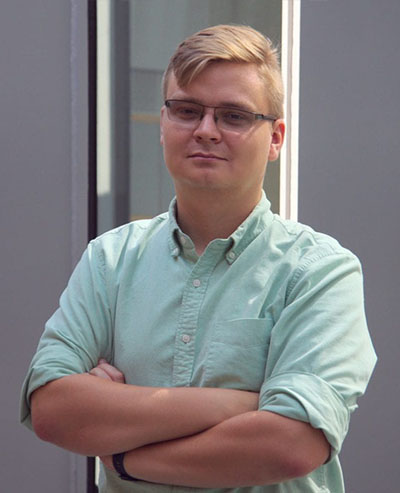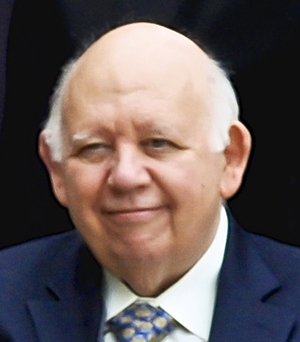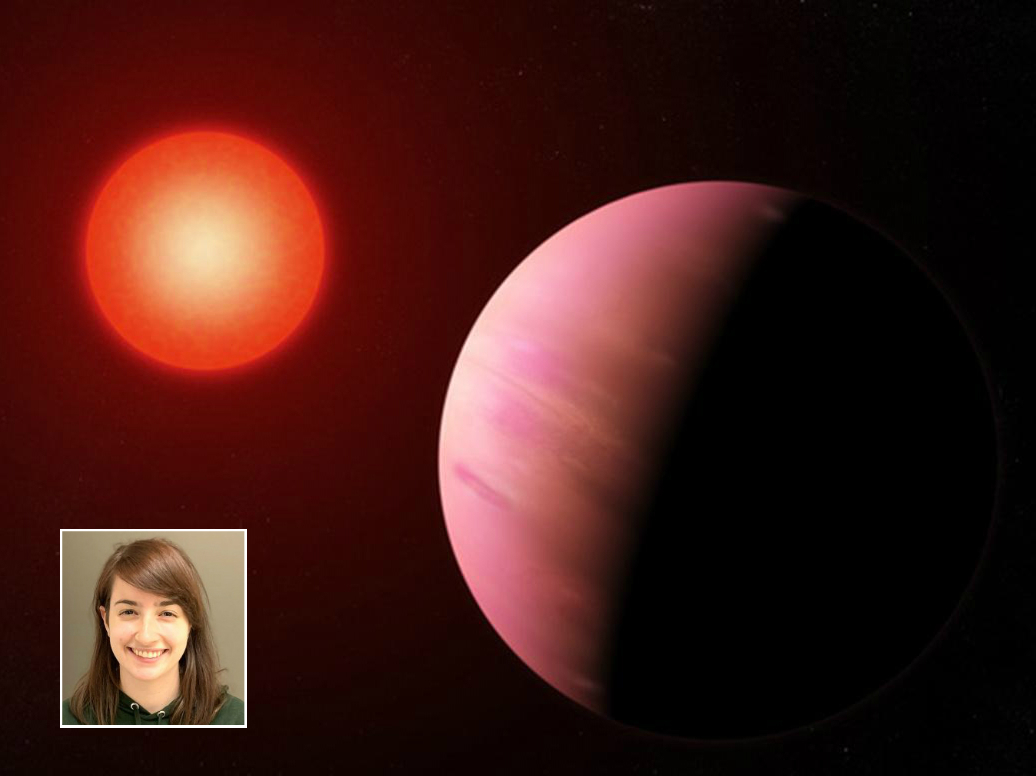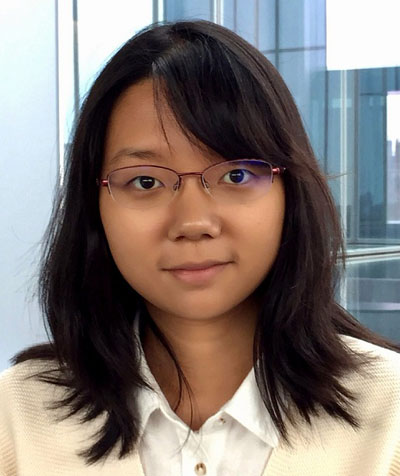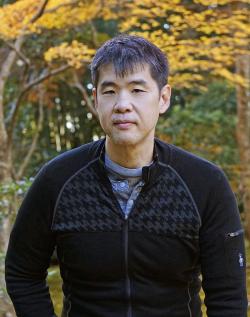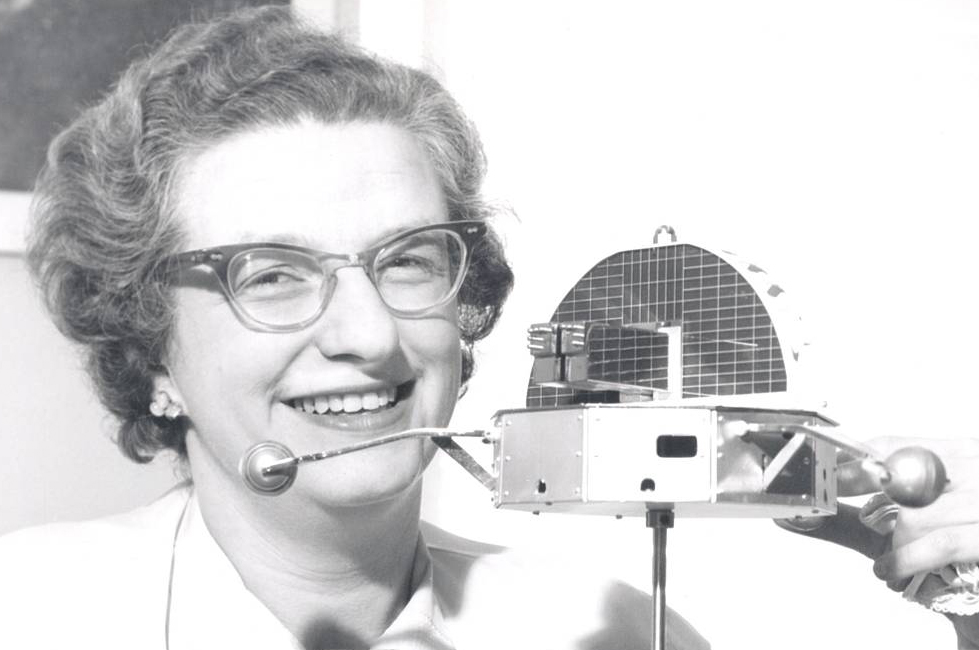 |
 |
 |
 |
 |
 |
 |
 |
 |
 |
 |
 |
|
News
|
Department News: 2019
Congratulations to Phil Mansfield December 4, 2019 Please join me in congratulating Phil Mansfield on his appointment as the James Cronin Graduate Student Fellow. Congratulations Phil! John Carlstrom, Department Chair and Subramanyan Chandrasekhar Distinguished Service Professor Related: Department members: John E. Carlstrom Department students: Philip Mansfield Congratulations to Bradford Benson September 6, 2019 Dear Colleagues, Please join me in congratulating Brad Benson on his promotion to Associate Professor [part-time] in the Department of Astronomy and Astrophysics. Congratulations Brad! John Carlstrom, Department Chair and Subramanyan Chandrasekhar Distinguished Service Professor Related: Department members: Bradford A. Benson Scientific projects: South Pole Telescope Event Horizon Telescope: 2020 Breakthrough Prize in Fundamental Physics September 5, 2019 Congratulations to the Event Horizon Telescope (EHT) collaboration for being awarded the 2020 Breakthrough Prize in Fundamental Physics. The citation reads: "For the first image of a supermassive black hole, taken by means of an Earth-sized alliance of telescopes." Several UChicago researchers are involved in the EHT collaboration, and the 10 meter South Pole Telescope (SPT) is a critical component of the network of telescopes that make up the EHT. Chicagoland EHT collaboration members include Brad Benson, John Carlstrom, Tom Crawford, Jason Henning, Ryan Keisler, Erik Leitch, Daniel Michalik, Andrew Nadolski, Steve Padin, and Sasha Rahlin. Related: Department members: Bradford A. Benson, John E. Carlstrom, Thomas Crawford, Richard Kessler, Stephen Padin Scientific projects: South Pole Telescope Current and former members of the Astronomy & Astrophysics and Geophysical Sciences Departments at UChicago were reunited at the "Extreme Solar Systems IV" conference in Iceland in August 2019 August 29, 2019 Current and former members of the Astronomy & Astrophysics and Geophysical Sciences Departments at UChicago were reunited at the "Extreme Solar Systems IV" conference in Iceland in August 2019. The Extreme Solar Systems conference brings together hundreds of exoplanet researchers from around the world to discuss the latest in exoplanet and stellar astrophysics research every four years. (Image Credit: Dan Fabrycky) 1901 Photograph: The Orion Nebula August 17, 2019 1901 Photograph: The Orion Nebula Astronomy Picture of the Day - August 17, 2019Astronomy Picture of the Day - August 17, 2019 Click on the image to enlarge Image Credit: George Ritchey, Yerkes Observatory Digitization Project: W. Cerny, R. Kron, Y. Liang, J. Lin, M. Martinez, E. Medina, B. Moss, B. Ogonor, M. Ransom, J. Sanchez (Univ. of Chicago) By the turn of the 20th century advances in photography contributed an important tool for astronomers. Improving photographic materials, long exposures, and new telescope designs produced astronomical images with details not visible at the telescopic eyepiece alone. Remarkably recognizable to astrophotographers today, this stunning image of the star forming Orion Nebula was captured in 1901 by American astronomer and telescope designer George Ritchey. The original glass photographic plate, sensitive to green and blue wavelengths, has been digitized and light-to-dark inverted to produce a positive image. His hand written notes indicate a 50 minute long exposure that ended at dawn and a reflecting telescope aperture of 24 inches masked to 18 inches to improve the sharpness of the recorded image. Ritchey's plates from over a hundred years ago preserve astronomical data and can still be used for exploring astrophysical processes. Related: Department members: Richard G. Kron Congratulations to Dr. Fakhri Zahedy July 23, 2019 Congratulations to Fakhri Zahedy for successfully defending his Ph.D. dissertation on "Multi-Pronged Studies of Diffuse Halo Gas around Massive Quiescent Galaxies". "Fakhri's ground breaking research addresses long-standing puzzles concerning the formation and growth of massive galaxies. During his graduate study, Fakhri led multiple innovative and ambitious observing programs to characterize the diffuse gas content in and around distant galaxies. His thesis work casts critical new insights into the chemical enrichment in quiescent halo. Fakhri is on a great trajectory and will continue his outstanding research at Carnegie Observatories as a Carnegie fellow in the fall. - Hsiao-Wen Chen, Ph.D. advisor Related: Department members: Hsiao-Wen Chen Department students: Fakhri Zahedy Petros Tzeferacos and Don Lamb to receive the 2019 APS John Dawson Award June 28, 2019 Petros Tzeferacos, Director of the Flash Center and Research Associate Professor, and Donald Q. Lamb, the Robert A. Millikan Distinguished Service Professor Emeritus, are among the winners of the 2019 APS John Dawson Award for Excellence in Plasma Physics Research. The citation reads: For innovative experiments that demonstrate turbulent dynamo in the laboratory, establishing laboratory experiments as a component in the study of turbulent magnetized plasmas, and opening a new path to laboratory investigations of other astrophysical processes. Congratulations Petros and Don! Related: Department members: Donald Q. Lamb, Petros Tzeferacos Scientific projects: Flash Center for Computational Science First Class of Astrophysics Majors to Walk at Convocation June 12, 2019 At convocation on June 15, nine students will be the first to graduate from the University of Chicago with a major in astrophysics. UChicago announced the major this past fall. Previously, undergraduate students interested in the subject would major in physics and enroll in elective courses in astrophysics. The new major, however, features a central sequence on major topics in astronomy and astrophysics as well as courses in statistics, computer science, and observational techniques. Read more Related: Department members: Julia Borst Brazas, John E. Carlstrom, Richard G. Kron, Angela V. Olinto Wayne Hu Receives Faculty Award for Excellence in Graduate Teaching and Mentoring June 3, 2019 Dear Colleagues, I am most pleased to announce that Wayne Hu has received a Faculty Award for Excellence in Graduate Teaching and Mentoring. It is particularly noteworthy that nominations for this award are made by our students and alumni. Please join me in congratulating Wayne. John Carlstrom, Subramanyan Chandrasekhar Distinguished Service Professor and Chair Department of Astronomy & Astrophysics Related: Department members: John E. Carlstrom, Wayne Hu Congratulations to Dr. Vadim Semenov May 31, 2019 Congratulations to Vadim Semenov for successfully defending his Ph.D. dissertation on "How Galaxies Form Stars: the Connection between Local and Global Star Formation in Galaxies". Vadim has received a position of Hubble Fellow at the Institute for Theory and Computation, Harvard University. Related: Department members: Andrey V. Kravtsov Department students: Vadim Semenov Congratulations to Taylor Hoyt May 22, 2019 Please join me in congratulating Taylor Hoyt on his appointment as the 2019 Brinson-Carnegie Graduate Fellow. Taylor is pursuing observational research aimed at improving the measurement of the Hubble Constant. Congratulations Taylor! John Carlstrom Chair and Subramanyan Chandrasekhar Distinguished Service Professor Related: Department members: John E. Carlstrom Department students: Taylor Hoyt Congratulations to Rebecca Diesing May 22, 2019 Please join me in congratulating Rebecca Diesing on her appointment as the Eugene N. Parker Graduate Student Fellowship. Notably, Rebecca is currently working on a project that hinges on solving the Parker (convection-diffusion) equation for the transport of cosmic rays. Congratulations Rebecca! John Carlstrom Chair and Subramanyan Chandrasekhar Distinguished Service Professor Related: Department members: John E. Carlstrom Department students: Rebecca Diesing Congratulations to Philip Mansfield May 21, 2019 I am most pleased to report that Philip Mansfield has been selected to receive William Rainey Harper Dissertation Fellowships for the 2019-2020 academic year! The award is one of the University of Chicago's highest honors and is given in recognition of outstanding achievement and professional promise. Congratulations Phil! John Carlstrom Chair and Subramanyan Chandrasekhar Distinguished Service Professor Related: Department members: John E. Carlstrom Department students: Philip Mansfield Congratulations to Maya Fishbach May 21, 2019 I am most pleased to report that Maya Fishbach has been selected to receive William Rainey Harper Dissertation Fellowships for the 2019-2020 academic year! The award is one of the University of Chicago's highest honors and is given in recognition of outstanding achievement and professional promise. Congratulations Maya! John Carlstrom Chair and Subramanyan Chandrasekhar Distinguished Service Professor Related: Department members: John E. Carlstrom Department students: Maya Fishbach Professor Alexei Khokhlov, 1954 - 2019 May 6, 2019 We are deeply saddened by the passing of our colleague, Professor Alexei Khokhlov, on May 4, 2019. Professor Khokhlov joined our department in 2003, playing a large role in the Flash Center for Computational Science, and he was also a member of the Enrico Fermi Institute. He was a world leader in theoretical and computational astrophysics and reactive flow fluid dynamics. His main research focus was large-scale multi-dimensional numerical simulations of thermonuclear Type Ia supernova explosions. He will be deeply missed by his colleagues, family, and friends. His obituary can be read here: Alexei M. Khokhlov, theoretical and computational astrophysicist, 1954-2019. The family asks that in lieu of flowers, to please consider making a donation in memory of Alexei Khokhlov to the Baltimore Hope Lodge run by the Cancer Society. Related: Department members: Alexei M. Khokhlov MAROON-X is on its way to Hawaii April 26, 2019 MAROON-X has shipped from Chicago and is on its way to Hawaii! In this image department members Andreas Seifahrt and Julian Stuermer can be seen packing the vacuum tank for the spectrograph. The next step is commissioning on Mauna Kea, which will be begin on May 6. Fakhri Zahedy has received a prestigious Carnegie Postdoctoral fellowship April 8, 2019 Fakhri Zahedy has received a prestigious Carnegie Postdoctoral fellowship to start in the fall of 2019. The position is for three years. The Carnegie Fellowship is intended to encourage long-term research in observational or theoretical astrophysics and/or instrumentation. The fellowships are extremely competitive, and are prized for their independence and for the resources they afford the fellows. Each fellow is key to ehnancing the Carnegie mission and expanding Carnegie's influence of unfettered, imaginative scientific research into the next generations. Related: Department members: Hsiao-Wen Chen Department students: Fakhri Zahedy Vadim Semenov was selected for the prestigious NASA Hubble Fellowship Program (NHFP) April 8, 2019 Vadim will be taking Hubble fellowship to the Institute for Theory and Computation (ITC) at Harvard. After 3 years of the Hubble fellowship he will continue there as an ITC fellow, position he was also offered as part of the process. The program enables outstanding postdoctoral scientists to pursue independent research in any area of NASA Astrophysics, using theory, observation, experimentation, or instrument development. Each fellowship provides the awardee up to three years of support. Related: Department members: Andrey V. Kravtsov Department students: Vadim Semenov Donald York has been awarded the Royal Astronomical Society Service Award for Astronomy January 13, 2019 Dear Colleagues, Please join me in congratulating Don York who has been awarded the Royal Astronomical Society Service Award for Astronomy. The RAS citation reads: "Professor Donald York, as the Founding Director of the Sloan Digital Sky Survey (SDSS), was a key figure in the conception, design, construction, and initial operation of one of the most successful astronomical facilities of the 21st century. With its first-ever digital image of the entire northern high galactic latitude sky, homogeneously and painstakingly calibrated in a novel photometric system, plus millions of homogeneously obtained spectra, SDSS has touched every subfield of astronomy. Multiple studies agree that SDSS is the most cited and most impactful facility in ground-based astronomy, or even all astronomy. More than 7,600 papers refer to SDSS in the title or abstract, and these publications have garnered roughly 400,000 citations. Twenty-five of these papers have 1,000 or more citations, and almost 800 have 100 or more citations. Professor York enabled one of the most significant astronomical projects of our lifetimes, one that benefits the entire international community, and is a truly deserving recipient of the RAS Service Award." Congratulations Don! John Carlstrom, Subramanyan Chandrasekhar Distinguished Service Professor and Chair Department of Astronomy & Astrophysics Related: Department members: John E. Carlstrom, Donald G. York Adina Feinstein helped discover a planet, K2-288Bb January 9, 2019 Adina Feinstein, a University of Chicago grad student, helped discover a planet, K2-288Bb, pictured at right in an artist's rendering. It orbits the fainter member of a pair of cool M-type stars every 31.3 days. | Provided/Benjamin Montet; NASA's Goddard Space FlightCenter/Francis Reddy "Citizen Scientists Find New World with NASA Telescope", JPL News Click on the image to enlarge Using data from NASA's Kepler space telescope, citizen scientists have discovered a planet roughly twice the size of Earth located within its star's habitable zone, the range of orbital distances where liquid water may exist on the planet's surface. The new world, known as K2-288Bb, could be rocky or could be a gas-rich planet similar to Neptune. Its size is rare among exoplanets - planets beyond our solar system. "It's a very exciting discovery due to how it was found, its temperate orbit and because planets of this size seem to be relatively uncommon," said Adina Feinstein, a University of Chicago graduate student who discussed the discovery on Monday, Jan. 7, at the 233rd meeting of the American Astronomical Society in Seattle. She is also the lead author of a paper describing the new planet accepted for publication by The Astronomical Journal. "U of C grad student helps discover a planet", by Mitch Dudek, Chicago Sun-Times "University of Chicago Astronomer Adina Feinstein finds a new planet", by Elifgeriswgnam, wgnradio.com Related: Department students: Adina Feinstein Congratulations to Fei Xu January 2, 2019 Please join me in congratulating Fei Xu on her receipt of the Elaine K. Bernstein Women in Science Award. Congratulations Fei! John Carlstrom, Chair and Subramanyan Chandrasekhar Distinguished Service Professor Related: Department members: John E. Carlstrom Department students: Fei Xu Congratulations to Wayne Hu January 2, 2019 Please join me in congratulating Wayne Hu on his appointment as the Paul Snowden Russell Distinguished Service Professor. Congratulations Wayne! John Carlstrom Chair and Subramanyan Chandrasekhar Distinguished Service Professor Read more Related: Department members: John E. Carlstrom, Wayne Hu Nancy Grace Roman, "mother" of the Hubble Telescope, dies aged 93 January 2, 2019 Dear Colleagues, I am sad to inform you that Nancy Grace Roman died on Christmas Day at the age of 93. She received her PhD in Astronomy and Astrophysics at UChicago in in 1949. Dr. Roman stayed on as a postdoc, instructor, and then joined the faculty as an assistant professor, becoming the first woman on the department's faculty. Not believing the university would tenure her, she left for a position with the Naval Research Laboratory in Washington, DC and was then recruited to the newly established NASA, where she served as the Chief of the Astronomy and Relativity Programs in the NASA Office of Space Science. Dr. Roman had enormous impact on Astronomy and Astrophysics. She is particularly well known for her role in planning the Hubble Space Telescope and is often referred to as the "Mother of Hubble". Dr. Roman was also a strong advocate for women in the sciences. As many of you know, the A&A department has decided to name the seminar and instruction room ERC 583 after Nancy Grace Roman to recognize her outstanding scientific career, her extraordinary leadership at NASA, and her decades of work as an advocate for inclusion in science. In her reply to our request to name the room after her, she said she was honored and included, "I hope that naming a room for a woman will encourage your female students. Astronomy needs more diversity." The plans for renovating ERC 583 are proceeding, including her image on the glass wall and several improvements to the room. You can learn more about Nancy Grace Roman's life in an article she wrote for ASP "Nancy Roman: An Astronomer's Life" and in a recent UChicago Magazine article "A wider scope". Sincerely, John Carlstrom Chair and Subramanyan Chandrasekhar Distinguished Service Professor Related: Department members: John E. Carlstrom |

